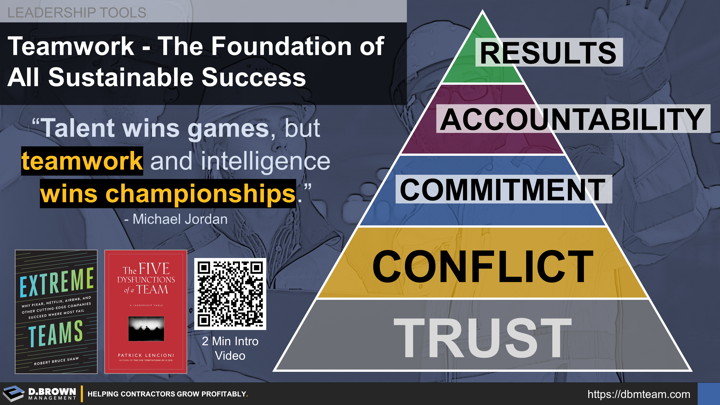Patrick Lencioni in his book The 5 Dysfunctions of a Team describes the elements of a great team:
- Trust forms the foundation upon which everything else is built. If each team member does not deeply trust the other then the rest of the pyramid is weak. Learn more about what trust really means and how to diagnose and improve it across all relationships.
- Constructive Conflict is crucial for success in business and on projects. Teams will not be open about problems or engage in active discussions if they don’t have a foundation of trust.
- Commitment is something that is talked about a lot but without the foundation of Trust, and then when going through the process of Constructive Conflict, team members will often passively commit.
- Accountability to each other and the commitment to hold each other accountable for behaviors and actions that help meet the commitments. Again, this element is often focused on but without the foundational layers, true accountability does not exist.
- Results is what everyone is looking for but a myopic focus on results won’t make them happen. Teams must build the strong foundation that makes the top-out of the building possible. These results start at the job description level and are integrated with the overall contractor's scoreboard.
Going Further
- 2 Minute Intro Video + Assessment Tools (Excellent Starting Point for Team Survey)
- Overcoming the Five Dysfunctions of a Team (Workbook)
- Extreme Teams (Book)

